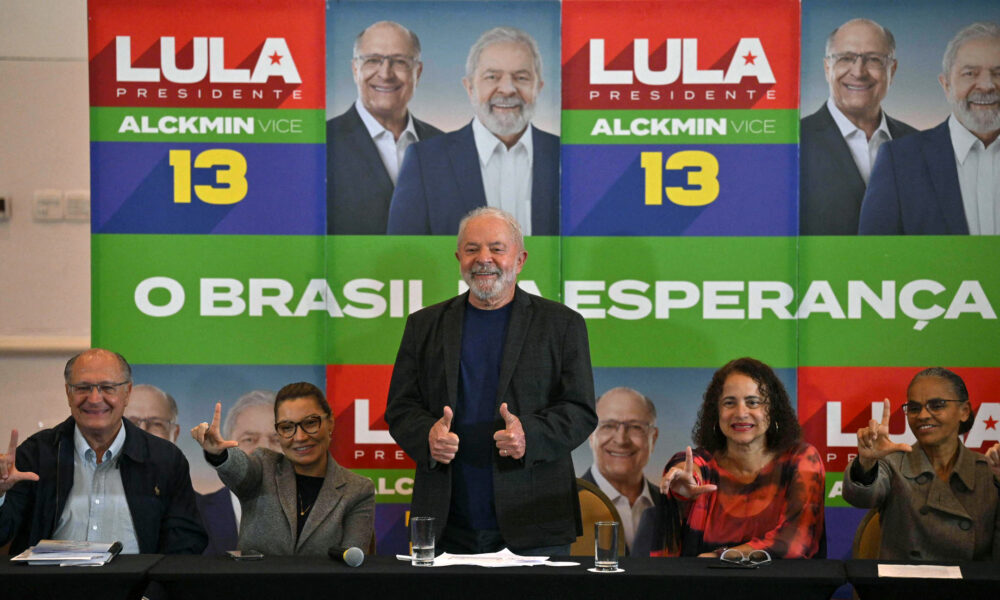International
Lula must fight for center to win Brazil runoff: analysts
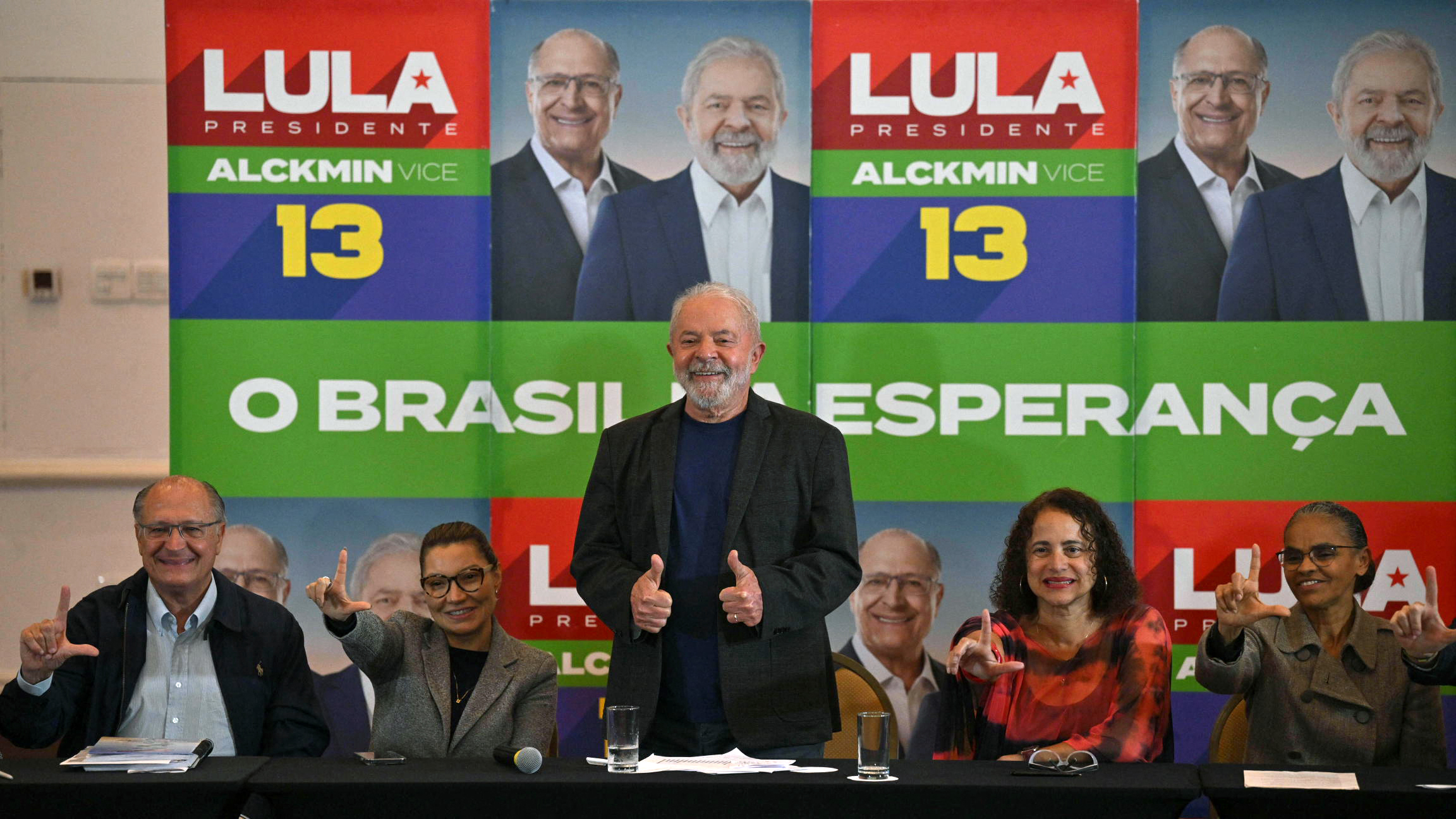
AFP | Javier Tovar
To prevail in Brazil’s tighter-than-expected presidential runoff, leftist veteran Luiz Inacio Lula da Silva will have to strike alliances with centrists, woo the business sector and offer voters more than just his legacy, analysts say.
The long-time front-runner may have won Sunday’s first-round vote against far-right incumbent Jair Bolsonaro, but the latter appears to have the momentum, having shattered pollsters’ forecasts of a rout to finish within five points of Lula (48 percent to 43) and force a second round on October 30.
If Lula, the charismatic but tarnished ex-president who led Brazil from 2003 to 2010, is to stymy Bolsonaro, analysts say, he will have to redouble his efforts to win back the political middle, still disillusioned over the devastating corruption charges — since annulled — that controversially sent him to jail in 2018.
The 76-year-old Workers’ Party (PT) founder acknowledged as much himself after Sunday’s disappointing results.
“We’ll have to spend less time preaching to the choir and more time talking to voters… those who appear not to like us,” he said Monday after meeting his campaign team to chart their strategy for the final stretch.
“Little peace-and-love Lula is ready to talk to everyone.”
Deal-making time
Known as a deft politician, Lula will need to tap that acumen to strike alliances.
“He will have to make some gestures and concessions” to the center-left and center-right, whose votes Bolsonaro will also be after, said political analyst Leandro Gabiati, head of consulting firm Dominium.
Lula already made a giant nod to centrists by picking center-right veteran Geraldo Alckmin — the candidate he beat in the 2006 presidential race — as his running mate.
Now he needs to chase the votes that went to Sunday’s third- and fourth-place finishers, center-right candidate Simone Tebet (four percent) and center-left candidate Ciro Gomes (three percent).
Lula got a clutch endorsement Tuesday from Gomes’s Democratic Labor Party (PDT), despite a long history of animosity between the two men.
Gomes grudgingly went along, saying in a video he “supported” the endorsement as “the only exit, under the circumstances.”
Getting the backing of center-right Senator Tebet, an anti-abortion Catholic, could meanwhile be key to luring socially conservative women voters.
She has hinted she is ready to back Lula. But it will be another matter winning over her party, the Brazilian Democratic Movement (MDB), which has a strong pro-Bolsonaro wing.
“Make your decision soon. Mine is already made,” Tebet told the divided party’s leadership.
Big spending shelved
Lula will also have to sell the business sector on his plans for Latin America’s biggest economy.
He presided over a watershed economic boom in the 2000s, blending market-friendly policy with ambitious social programs.
But Bolsonaro has more backing from the market this time around — as seen when stocks surged Monday on his better-than-expected showing.
Lula will have to be “malleable” on economic policy to woo the business sector, said Arthur Ituassu, professor of political communication at Pontifical Catholic University in Rio de Janeiro.
The former president will likely have to renegotiate his plans to expand social spending and overhaul the tax system, Ituassu said.
“That’s going to be fundamental,” he said. “That’s how he wins the volatile center.”
Back to the future?
Lula, who left office basking in a record 87-percent approval rating, also must stop leaning so heavily on his legacy and offer voters concrete, forward-looking policy plans, analysts say.
“He’s only talked about his achievements from his past administrations,” said Paulo Calmon, a political scientist at the University of Brasilia.
“He needs to present plans for the future.”
If that weren’t enough, the former president also will have to perform one final feat of political gymnastics: execute all the above without losing the 57 million votes he won Sunday.
“A lot of voters who aren’t necessarily on the left voted for Lula out of anti-Bolsonaro sentiment,” said Dominium’s Gabiati.
“But if Bolsonaro improves his message, he might reverse that rejection… and win that vote.”
International
Bayly Says Trump ‘Gets Along Better With Dictators’ and Criticizes U.S.–Venezuela Policy
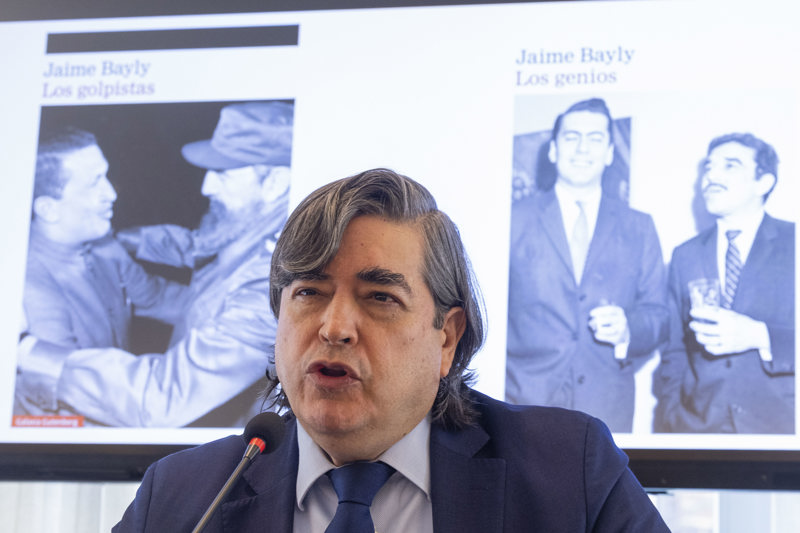
Peruvian author and journalist Jaime Bayly said Tuesday in Madrid that U.S. President Donald Trump “gets along better with dictators than he does with democrats” and that his administration is experiencing “a honeymoon with the Venezuelan dictatorship,” according to a report on his remarks during the launch of his new novel Los golpistas (Galaxia Gutenberg).
Bayly made the comments while presenting the book, which reconstructs the turbulent three days in April 2002 when Venezuelan leader Hugo Chávez briefly lost power. He also sharply criticized the current Venezuelan leadership, saying that Delcy Rodríguez should be recognized as a dictator and “a continuation of Maduro’s dictatorship.”
The writer lamented that the failed 2002 coup — which he described as carried out by “amateurs” — did not lead to free elections that might have restored democracy to Venezuela. He argued that, even now, U.S. policy under Trump seems more focused on securing access to Venezuelan oil than on supporting Venezuelans’ freedom. “Venezuela could have chosen a free, clean and legitimate government — which we still impatiently await despite Trump, who only seems interested in freeing Venezuelan oil, not Venezuelans,” Bayly said.
Bayly also claimed that “every day that passes, Trump seems more enchanted with Delcy,” suggesting that Washington might leave Venezuelan leaders in power so long as they cooperate on economic interests.
A U.S. citizen who has lived in Miami for decades, Bayly said he is proud never to have voted for Trump, whom he described as “servile with the powerful and cruel with the weak.” He also criticized U.S. immigration enforcement as abusive.
Regarding the book’s creative process, Bayly said he combined extensive documentation and interviews with historical events, weaving fictional dialogue and narrative into real episodes without altering core facts. Los golpistas explores why the April 2002 coup attempt against Chávez failed and how key figures such as Chávez and Cuban leader Fidel Castroshaped modern Venezuelan history.
International
Maduro and Cilia Flores Receive Consular Visit in U.S. Jail Ahead of March 26 Hearing
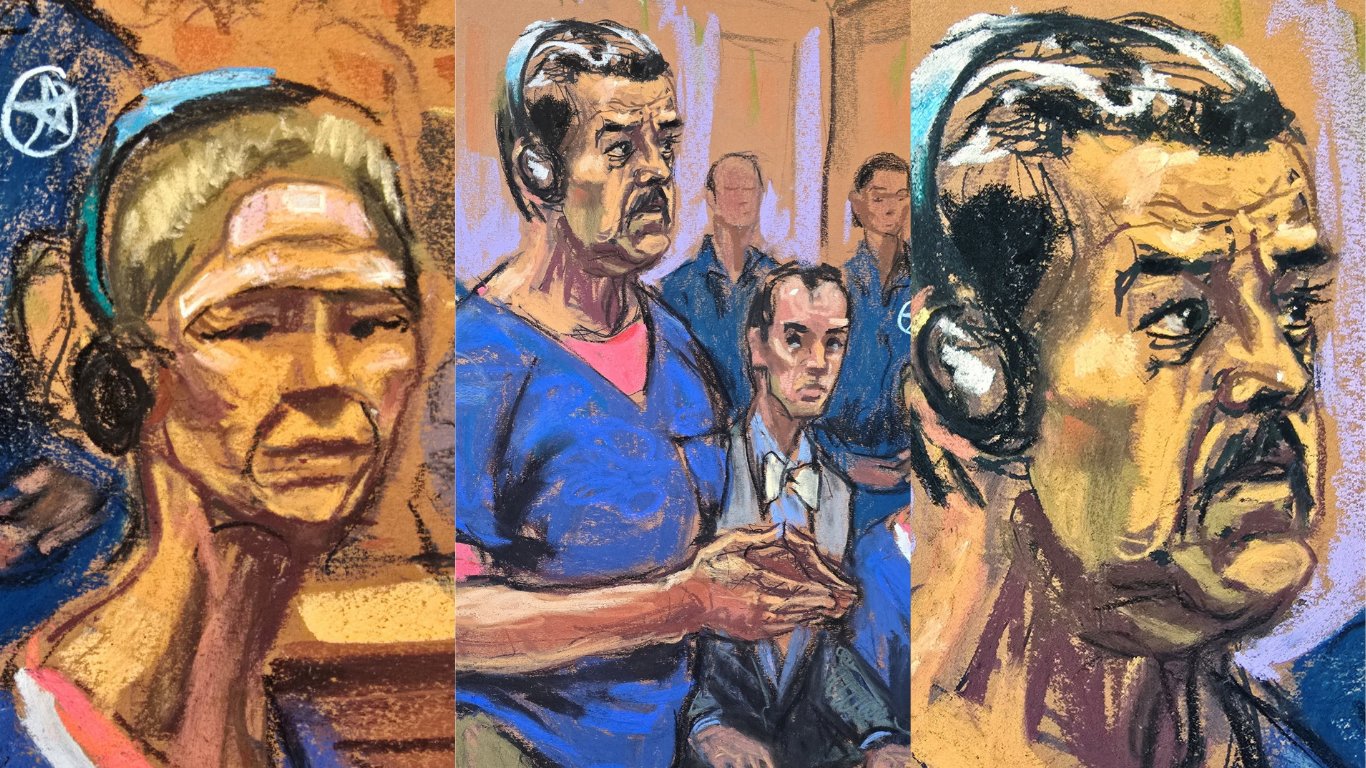
Venezuelan President Nicolás Maduro, who is detained in the United States, and his wife, Cilia Flores, received a consular visit from a Venezuelan government official on January 30 while they remain in a New York jail awaiting their next court appearance, scheduled for March 26, 2026, according to a court filing.
The notification, submitted to the judge by prosecutors and the defense and now part of the digital case file, states that Maduro and Flores were visited by “an official representing the Republic of Venezuela to help facilitate any services the accused needed.”
The document also notes that U.S. District Judge Alvin Hellerstein ordered the U.S. prosecutor’s office at the couple’s first court appearance on January 5 to ensure they had access to consular services and to inform the court when such access was provided.
Their next hearing was postponed by the court from an original date of March 17 to March 26 at 11:00 a.m., after prosecutors, with the consent of the defense, requested extra time to gather evidence, allow the defense to review it, and determine which pretrial motions they will file, the filing says.
Maduro has denied wrongdoing, calling himself “innocent” of the narcotics charges authorities have brought in federal court.
International
Rubio Engages in Quiet Discussions With Castro Family as U.S. Pressures Havana

El secretario de Estado de Estados Unidos, Marco Rubio, sostuvo conversaciones secretas con Raúl Guillermo Rodríguez Castro, nieto y actual cuidador del expresidente cubano Raúl Castro, según reveló este miércoles el medio estadounidense Axios. Los contactos se producen en un contexto de fuerte presión de Washington sobre el Gobierno de La Habana.
De acuerdo con la publicación, los diálogos han evitado los canales oficiales del Ejecutivo cubano y reflejan que la administración del Presidente de Estados Unidos, Donald Trump, considera al exmandatario de 94 años como la figura que aún influye en las decisiones clave de la isla. Un alto funcionario citado por Axios matizó el carácter de los encuentros al afirmar: «Yo no las llamaría ‘negociaciones’, sino ‘discusiones’ sobre el futuro».
Rubio, de ascendencia cubana, y su equipo ven en Rodríguez Castro, de 41 años, y su entorno a una generación más joven y con mentalidad empresarial, que percibe agotado el modelo comunista tradicional y valora un eventual acercamiento con Estados Unidos. “Nuestra postura —la postura del gobierno estadounidense— es que el régimen tiene que irse”, declaró el funcionario a Axios, al tiempo que agregó que “pero cómo se verá eso exactamente depende del presidente Trump y aún no lo ha decidido. Rubio sigue en conversaciones con su nieto”.
Según fuentes citadas por el medio, asesores de Trump han mantenido contactos con otros actores influyentes en Cuba, pero consideran al nieto de Castro una figura clave por su cercanía con el exmandatario y sus vínculos con el conglomerado militar-empresarial GAESA. Una fuente describió los intercambios como “sorprendentemente” amistosos.
Las revelaciones surgen mientras el Presidente de Estados Unidos confirmó recientemente que su Gobierno mantiene conversaciones con altos funcionarios cubanos, aunque La Habana lo ha negado. “Estamos hablando con Cuba ahora mismo. (El secretario de Estado de EE.UU.) Marco Rubio está hablando con Cuba ahora mismo, y deberían totalmente llegar a un acuerdo, porque es… realmente, una amenaza humanitaria”, declaró el mandatario a bordo del avión presidencial.
El endurecimiento del bloqueo energético estadounidense ha profundizado la crisis en la isla, con apagones prolongados, reducción de servicios en hospitales y oficinas públicas, y limitaciones en el abastecimiento de productos, lo que añade presión a un eventual diálogo entre Washington y La Habana.
-

 Central America4 days ago
Central America4 days agoGuatemala’s president denounces MP raids during Constitutional Court election
-
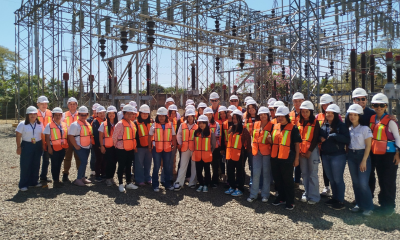
 Central America4 days ago
Central America4 days agoTeens visit ETESAL substation to learn about responsible energy use
-
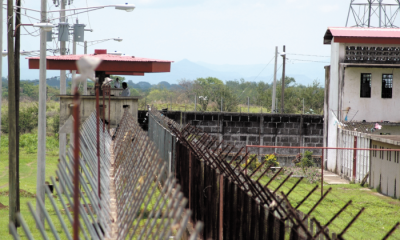
 Central America15 hours ago
Central America15 hours agoWashington Imposes Visa Ban on La Modelo Director Amid Crackdown in Nicaragua
-
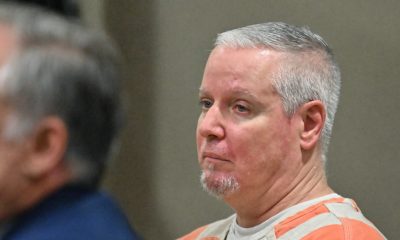
 International2 days ago
International2 days agoFather Faces Murder Charges in Georgia School Shooting Case
-
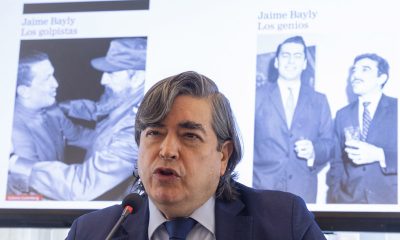
 International15 hours ago
International15 hours agoBayly Says Trump ‘Gets Along Better With Dictators’ and Criticizes U.S.–Venezuela Policy
-
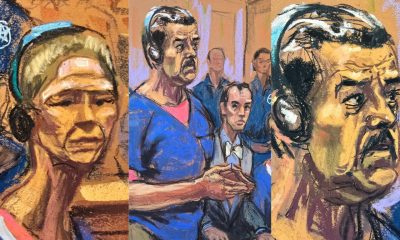
 International15 hours ago
International15 hours agoMaduro and Cilia Flores Receive Consular Visit in U.S. Jail Ahead of March 26 Hearing
-

 International2 days ago
International2 days agoSpanish Government Targets ‘Big Tech Impunity’ in AI Image Scandal
-

 International16 hours ago
International16 hours agoRubio Engages in Quiet Discussions With Castro Family as U.S. Pressures Havana
-
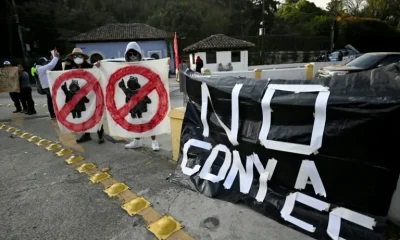
 Central America3 days ago
Central America3 days agoGuatemala’s Attorney General Consuelo Porras Loses Bid for Constitutional Court Seat













